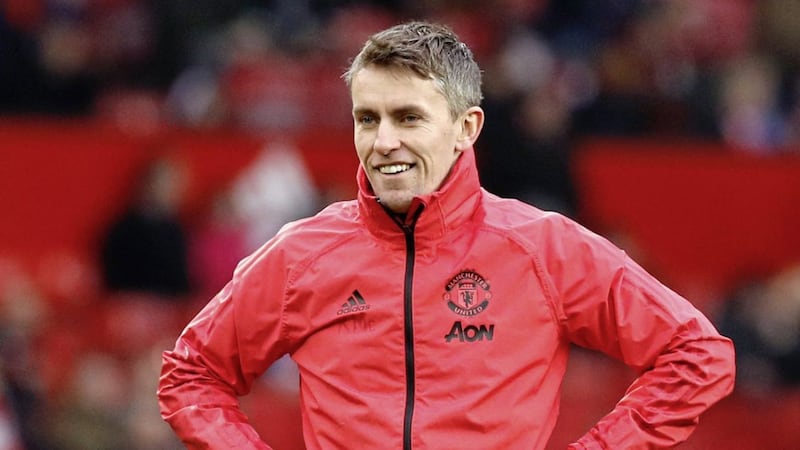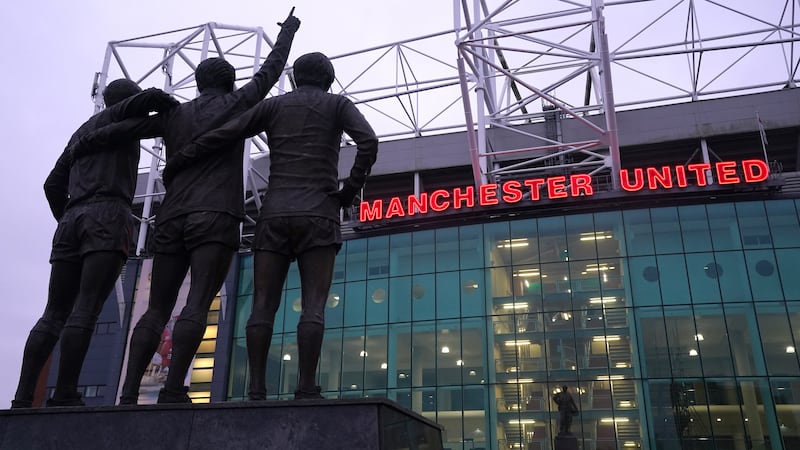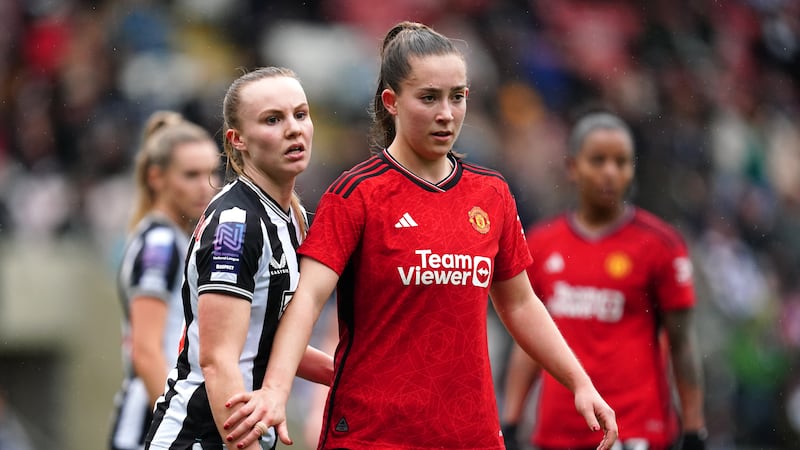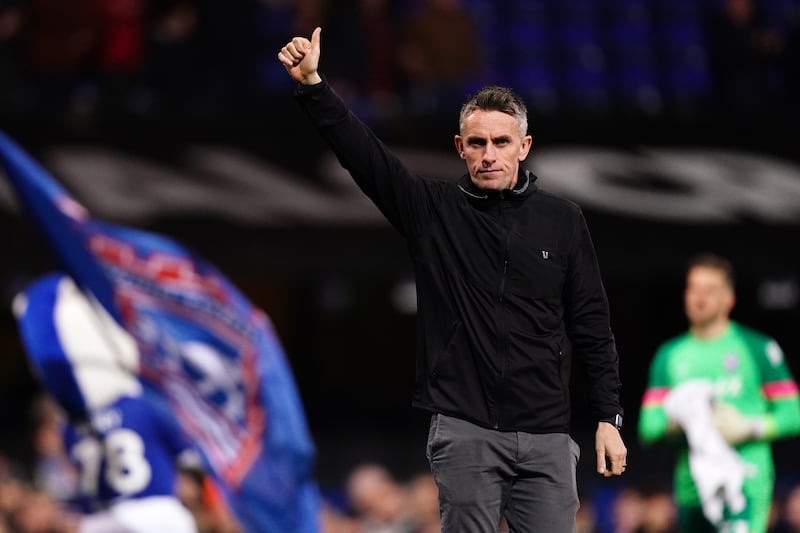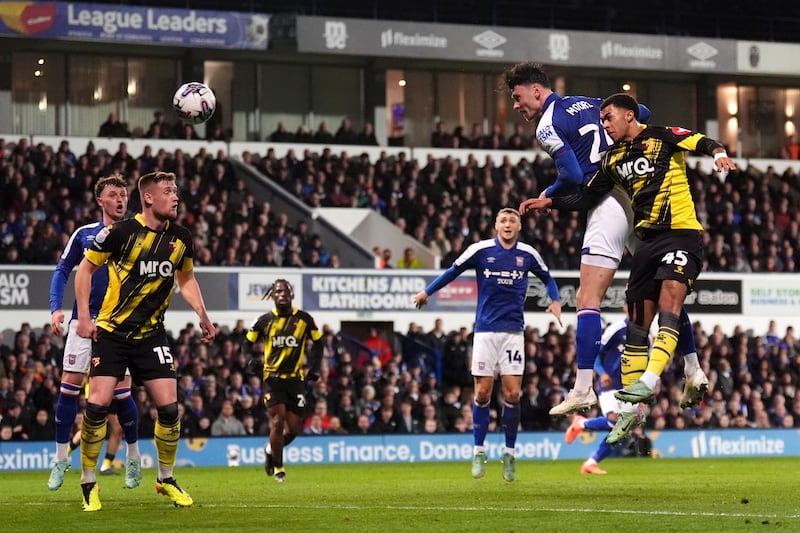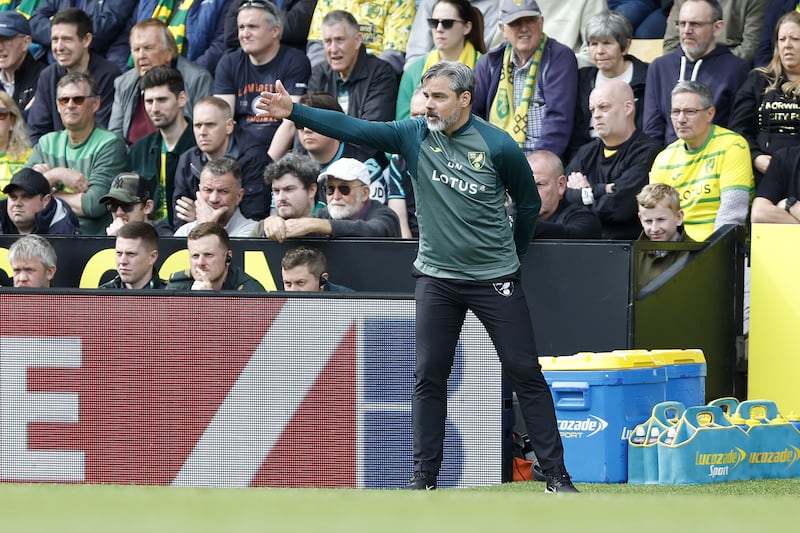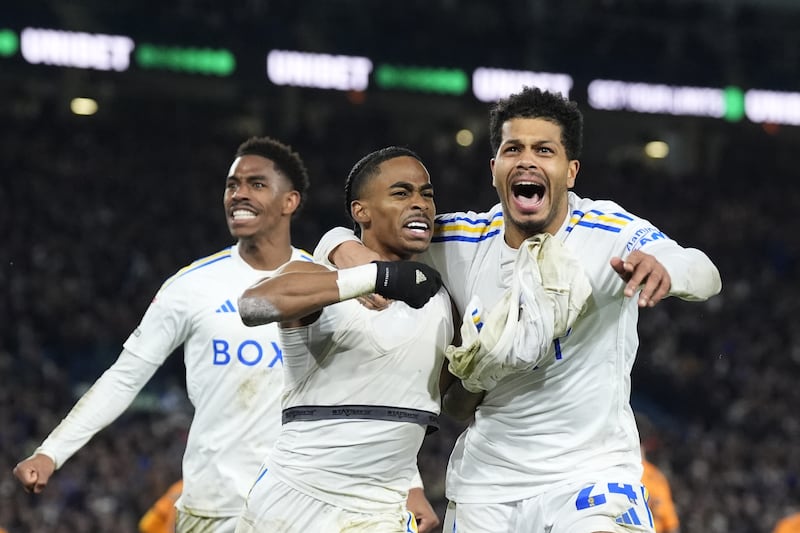THE cheers of 70,000 ecstatic souls threaded paths up through the pouring rain and the Old Trafford theatre began to dream again.
Seconds before Scott McTominay had pounced on Ederson’s mistake and, with a touch of United flair, he swept the ball into the back of the City net from 40 yards to give the home side a 2-0 lead over their bitter rivals with time almost up.
Reds celebrated on the field, in the stands, and around the world. It was a result to savour and not just for bragging rights’ sake. It was the workrate, the focus, the gameplan, the young talent coming through… Maybe a corner had been turned?
‘Ole's at the wheel, tell me how good does it feel…’
Of course they celebrated on the bench too. To win the Manchester derby – United’s last game in the Premier League before the Coronavirus pandemic necessitated what we all hope is only a belated half-time whistle on the 2019/20 season – must have been particularly special for manager Ole Gunnar Solskjaer and his assistants Michael Carrick and Kieran McKenna.
Like Solskjaer, Carrick is a former United player but Fermanagh native McKenna had taken a much more low-key, much less straightforward route to the ‘Red Devils’ from Enniskillen via Tottenham Hotspur. Injury had ruined his own promising career but the former St Michael’s CBS student had shown remarkable resilience and dedication to reinvent himself as coach and move from youth team level to the bench at Old Trafford.
His journey began at Enniskillen Town FC.
“I joined when I was nine with my brother James who had a good career in the Irish League (with Ballinamallard),” he explains.
“They had a good youth set-up there at the time. We didn’t tend to win all the time but the coaches made sure we all enjoyed it and loved the game.”
As in so many Irish households, the question of football loyalty boiled down a choice between two Reds. James went one way, Kieran went the other.
“I was always a Man United fan,” he says and that meant there was always a bit of rivalry between him and his Liverpool-supporting brother in what was “a football house”. Sport was a constant focus and when winter turned to spring, Enniskillen Town was replaced by Enniskillen Gaels.
“The Gaelic was something I really enjoyed,” says London-born Kieran.
“I played for the Gaels and St Michael’s up to fifth year which was when I moved over to London and I even sneaked a few games in after that. I always loved it and I still follow the game from over here.
“I played a bit everywhere. Midfield mostly for the Gaels and then in the forward line for the College. I probably did best when I was given a bit of a free role and I could use my soccer brain a little bit to find space.”
He lined-out with future Fermanagh players Ryan McCluskey and Shane McCabe at St Michael’s even though they were a couple of years older but by the time he’d reached third year, soccer was increasingly becoming his “main priority”. He’d switched to Irish League outfit Ballinamallard and stepped up to the Mid-Ulster League which is where he first came into contact with Gerry McKee, the Tottenham Hotspur scout in Northern Ireland.
“My name had got about a bit from my time with Enniskillen Town and Gerry was the first person to push an English Premier League club to take me across,” he says.
“I’ll always be very grateful to him, I’m still I contact with him so it was an exciting time – it would be exciting for any 14-year-old.”
No doubt about that. Kieran travelled to north London for trials and there was interest from other English and Scottish clubs as well. He had trials at Leicester City while Newcastle and Man City were among his other suitors. But, when a firm offer came from Spurs, he packed his bags after he’d completed his GCSEs (four A-stars and six As) and headed off to White Hart Lane in July 2002.
“It went really well for me at Tottenham, I got an offer pretty quickly and the rest is history really,” he says.
“I was really happy there so it didn’t take much deliberation for me to sign for them when the offer was on the table.”
Getting to train every day and be around football every day… Spurs was a footballing “dreamworld” for him.
“There were difficult times as well in terms of homesickness and things all Irish boys experience when they go across the water,” he says.
“But I managed to get through that phase and I became mentally a lot stronger for it. The club was very supportive too. There were quite a few other Irish boys in the youth team at the time as well so you had that support.
“They were used to having boys over from Ireland and I had some family over in London as well – my uncles and my grandparents live there and that was helpful.”
As a two-footed, hard-working centre-midfielder, he progressed through the youth team and a reserve side that included the likes of Tom Huddlestone and Jamie O’Hara to the fringes of the first team and trained with a squad packed with international stars including: Ledley King, Jermaine Defoe, Robbie Keane, (Edgar) Davids, (Dimitar) Berbatov and Gareth Bale.
“Over the course of the years I was there, Spurs had some really top players and it was great to play with them and train with them every day. I look back on that period with a lot of pride,” he says.
“Having Robbie Keane and some other really good characters around the first team meant making that step up was a little bit easier because there were good players and good role models in that group.
“Robbie was really good. He was very tough with all the young players who came up to train with the first team because his standards are so high. He’s such a competitor that he wanted to win every day at training and he didn’t accept anything else but for me that was fantastic because that’s the mindset I wanted to have so I just enjoyed training with him and learning from him when I had the opportunity.
“He was a really good person off the pitch as well. People like him and Ledley King were especially great with the young lads who came up and Robbie was one of the best.”
Glenn Hoddle had been manager when he first signed and by the time Martin Jol replaced Jacques Santini in 2004, McKenna sensed he was on the verge of making the first team breakthrough he craved.
“I was 19 or 20, I was playing in the reserves and I had been around the first team for 12 months,” he explains.
“I was training with them regularly and I think I was starting to knock on the door a little bit. At that stage I was feeling confident and feeling that I could make an impression in the first team.
“Martin was very good with the young players and he wanted to give young players coming through an opportunity. That was the period that I felt closest to making the breakthrough.”
But all the while the injury that would destroy his hopes and dreams was developing. A chronic hip problem first flared up when he was 20 and he was unable to get on top of it despite tireless efforts over the next two years.
“It was tough, especially as I was making a bit of headway,” he admits.
“It’s the toughest bit for any sportsman really, that bit where you’re training in isolation and you’re away from your team-mates.
“You put in a lot of work on different areas of your body so to go through that and come back and get injured, and then come back again and have it happen all over again is difficult but I always had the mindset of it making me stronger mentally and that if I wasn’t on the pitch there were other aspects of the game that I could work on.”
His uncommon ability to roll with the punches, deal with the crushing setback and make the best out of the situation allowed him to change focus to another path.
“I wasn’t able to play regularly but on the other hand the fact that the injury was chronic and so long-term meant it gave me the time to adjust a little bit to being off the pitch,” he explains.
“I think it’s another thing that made me mentally stronger. I worked incredibly hard on my rehab and while I was doing that I had a bit of time to reflect and to get used to being off the pitch and think about what I would like to do if I wasn’t able to continue.
“I was 22 when I had my last surgery and when I wasn’t able to come back from that I was already quite far down the line of transitioning into the next part of my life and the next part of my career.”
In 2009, aged 22, his dreams of being a Premier League player and an international (he had represented Northern Ireland at U16, U19 and U21 level) were over. One door closed and another opened. At Spurs he had completed his A-levels and there were other career paths open to him. He considered going into teaching but, when he weighed it all up, he remained determined to stay in football and so he threw himself into a learning all he could about the art, science and techniques of coaching.
“I knew I wanted to stay in football but it’s another thing making the big jump into the coaching profession and it wasn’t easy,” he says.
“The biggest thing that has got me to where I am now is just a huge amount of hard work and sacrifice and appetite to progress and make myself better. I think I was very lucky that at the start if my coaching career I was exposed to some very good coaches and to a very good youth team group at Spurs.
“I started working straightaway with the under-18s at Spurs with the Alex Inglethorpe (now youth academy director at Liverpool) and John McDermott (now the FA’s assistant technical director) and it was a fantastic youth team at the time with Stephen Caulker, Andros Townsend, Ryan Mason and a young Harry Kane (now England captain).
“I had just come out of playing so it was a fantastic insight for me. The work that was going on was probably ahead of what was going on at any other club at that time.
“So it gave me a really good head start and a really good insight and after that it’s the work and the sacrifices you’re prepared to make. The three years I spent at Loughborough were pivotal too.
“I was studying for a degree (in sports science) but I was also coaching at non-league level and university football and I was working at Nottingham Forest four times a week with the under-10s and under-11s.
“I was spent my summers coaching in New York with Graham Brown, who had been a coach in Fermanagh, working with his college team in upstate New York, and then Canada (four months with the Vancouver Whitecaps from their first team down to their under-10 side) and I was still travelling to Spurs to get involved with the youth team.
“I was doing eight to 10 sessions a week and probably three games on top of that and building a huge catalogue of experience at a very young age. I think it was that grounding and the work I put in that has benefitted me most and enabled me to get the experience that a lot of other people aren’t able to get. On top of that there are probably some personal qualities that I have that have benefitted me as well but the over-riding thing is the workrate and appetite to develop yourself.
“I put in a huge amount of hours and I made a huge sacrifice in terms of my personal time and personal life but thankfully I had really good support around me and putting in the hours is the only way to do it really.
“I was able to take some of the things I learned and implement my own ideas into them as well and there are things from that time that I still use today.”
Spurs welcomed him home after he graduated from Loughborough and he was appointed assistant-coach to their under-18 side and also set-up the academy analysis department in the club.
“It was really important to learn that side of it because it is something that is really big in my work now,” he says.
By the age of 26 he was manager of the youth team and his attention to detail, creative and innovative coaching methods and technical and tactical savvy did not go unnoticed. Once again other Premier League clubs were interested in getting him on board but he remained at Spurs until, in 2016, an opportunity came knocking that he just couldn’t say no to.
“It was something that was too good to turn down really,” he says.
Read the second part of Kieran McKenna’s story here.
